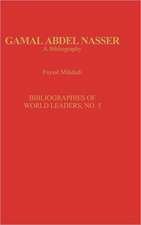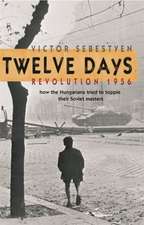Rhetoric and the Decolonization and Recolonization of East Timor: Routledge Contemporary Southeast Asia Series
Autor David Hicksen Limba Engleză Paperback – 12 ian 2018
This book presents a compelling and original perspective on the critical period of 1974-1975 in the history of East Timor. It describes how the language of politics helped to shape the events that brought about the decolonization of Portuguese Timor, its brief independence as The Democratic Republic of East Timor, and its recolonization by an Asian neighbour. Further, it challenges the idea that this period of history was infused by the spirit of nationalism in which the majority Timorese partook, and which contended with other competing western –isms, including colonialism, communism, neo-colonialism, and fascism. In contrast, the book argues that the Timorese majority had little understanding of any of these alien political abstractions and that the period can be most effectively explained and understood in terms of the contrast between the political culture of Dili, the capital, and the political culture of the rest of the country. In turn, David Hicks highlights how the period of 1974-1975 can offer lessons to government and international policy-makers alike who are trying to bring about a transformation in governance from the traditional to the legal and convert individuals from peasants to citizens.
The result of extensive fieldwork and interviews, this book will be of interest to students and scholars of Southeast Asian studies, international relations, post-conflict studies and post-colonial studies.
| Toate formatele și edițiile | Preț | Express |
|---|---|---|
| Paperback (1) | 433.26 lei 6-8 săpt. | |
| Taylor & Francis – 12 ian 2018 | 433.26 lei 6-8 săpt. | |
| Hardback (1) | 1056.95 lei 6-8 săpt. | |
| Taylor & Francis – 4 sep 2014 | 1056.95 lei 6-8 săpt. |
Din seria Routledge Contemporary Southeast Asia Series
-
 Preț: 310.84 lei
Preț: 310.84 lei -
 Preț: 310.65 lei
Preț: 310.65 lei -
 Preț: 281.72 lei
Preț: 281.72 lei -
 Preț: 310.95 lei
Preț: 310.95 lei -
 Preț: 317.63 lei
Preț: 317.63 lei -
 Preț: 310.96 lei
Preț: 310.96 lei -
 Preț: 320.57 lei
Preț: 320.57 lei -
 Preț: 151.92 lei
Preț: 151.92 lei -
 Preț: 340.61 lei
Preț: 340.61 lei -
 Preț: 318.65 lei
Preț: 318.65 lei - 18%
 Preț: 1058.79 lei
Preț: 1058.79 lei - 18%
 Preț: 1055.21 lei
Preț: 1055.21 lei -
 Preț: 412.57 lei
Preț: 412.57 lei - 41%
 Preț: 238.48 lei
Preț: 238.48 lei - 18%
 Preț: 1054.58 lei
Preț: 1054.58 lei - 18%
 Preț: 1111.51 lei
Preț: 1111.51 lei - 18%
 Preț: 1062.98 lei
Preț: 1062.98 lei - 18%
 Preț: 1166.49 lei
Preț: 1166.49 lei - 18%
 Preț: 1056.28 lei
Preț: 1056.28 lei -
 Preț: 410.28 lei
Preț: 410.28 lei - 18%
 Preț: 1060.25 lei
Preț: 1060.25 lei - 18%
 Preț: 1060.52 lei
Preț: 1060.52 lei - 18%
 Preț: 1057.75 lei
Preț: 1057.75 lei - 18%
 Preț: 708.67 lei
Preț: 708.67 lei - 26%
 Preț: 821.10 lei
Preț: 821.10 lei - 18%
 Preț: 1060.87 lei
Preț: 1060.87 lei - 18%
 Preț: 1057.05 lei
Preț: 1057.05 lei - 25%
 Preț: 825.43 lei
Preț: 825.43 lei - 15%
 Preț: 707.79 lei
Preț: 707.79 lei - 18%
 Preț: 1058.86 lei
Preț: 1058.86 lei - 18%
 Preț: 1280.80 lei
Preț: 1280.80 lei - 25%
 Preț: 824.17 lei
Preț: 824.17 lei - 18%
 Preț: 1004.34 lei
Preț: 1004.34 lei - 26%
 Preț: 820.56 lei
Preț: 820.56 lei - 18%
 Preț: 1064.01 lei
Preț: 1064.01 lei - 18%
 Preț: 736.24 lei
Preț: 736.24 lei - 18%
 Preț: 1164.92 lei
Preț: 1164.92 lei - 18%
 Preț: 1217.95 lei
Preț: 1217.95 lei - 26%
 Preț: 848.03 lei
Preț: 848.03 lei - 18%
 Preț: 1053.47 lei
Preț: 1053.47 lei - 18%
 Preț: 1057.75 lei
Preț: 1057.75 lei - 18%
 Preț: 1053.92 lei
Preț: 1053.92 lei - 18%
 Preț: 1106.02 lei
Preț: 1106.02 lei - 18%
 Preț: 1057.05 lei
Preț: 1057.05 lei - 18%
 Preț: 1060.52 lei
Preț: 1060.52 lei -
 Preț: 428.63 lei
Preț: 428.63 lei -
 Preț: 385.25 lei
Preț: 385.25 lei - 18%
 Preț: 1057.75 lei
Preț: 1057.75 lei
Preț: 433.26 lei
Nou
Puncte Express: 650
Preț estimativ în valută:
82.90€ • 86.56$ • 68.61£
82.90€ • 86.56$ • 68.61£
Carte tipărită la comandă
Livrare economică 04-18 aprilie
Preluare comenzi: 021 569.72.76
Specificații
ISBN-13: 9781138476356
ISBN-10: 1138476358
Pagini: 250
Ilustrații: 2 Line drawings, black and white; 1 Halftones, black and white; 3 Illustrations, black and white
Dimensiuni: 156 x 234 x 13 mm
Greutate: 0.39 kg
Ediția:1
Editura: Taylor & Francis
Colecția Routledge
Seria Routledge Contemporary Southeast Asia Series
Locul publicării:Oxford, United Kingdom
ISBN-10: 1138476358
Pagini: 250
Ilustrații: 2 Line drawings, black and white; 1 Halftones, black and white; 3 Illustrations, black and white
Dimensiuni: 156 x 234 x 13 mm
Greutate: 0.39 kg
Ediția:1
Editura: Taylor & Francis
Colecția Routledge
Seria Routledge Contemporary Southeast Asia Series
Locul publicării:Oxford, United Kingdom
Public țintă
PostgraduateCuprins
1. Introduction 2. Ema Foho, Ema Lisan 3. Portugal’s Legacy and the Politicians of Dili 4. Rhetoric and its Agenda 5. April-December 1974 6. A Coligação and its Aftermath: January-July 1975 7.Words and Deeds: Dili, August-December 1975 8.Words and Deeds: the foho 9. Rhetoric 10. The Legacy of 1974-1975
Notă biografică
David Hicks is Professor of Anthropology at Stony Brook University, USA., and Life Member of Clare Hall, University of Cambridge, UK..
Descriere
Rhetoric, Violence, and the Decolonization of East Timor presents a compelling and original perspective of the critical period of 1974-1975 in the history of East Timor. It challenges the idea that this period of history was infused by the spirit of nationalism in which the majority Timorese partook, and which contended with other competing western –isms, including colonialism, communism, neo-colonialism, and fascism. In contrast, the book argues that the Timorese majority had little understanding of any of these alien political abstractions and that the period can be most plausibly explained in terms of a dialectic between the political culture of Dili, the capital, and the political culture of the rest of the country.

















